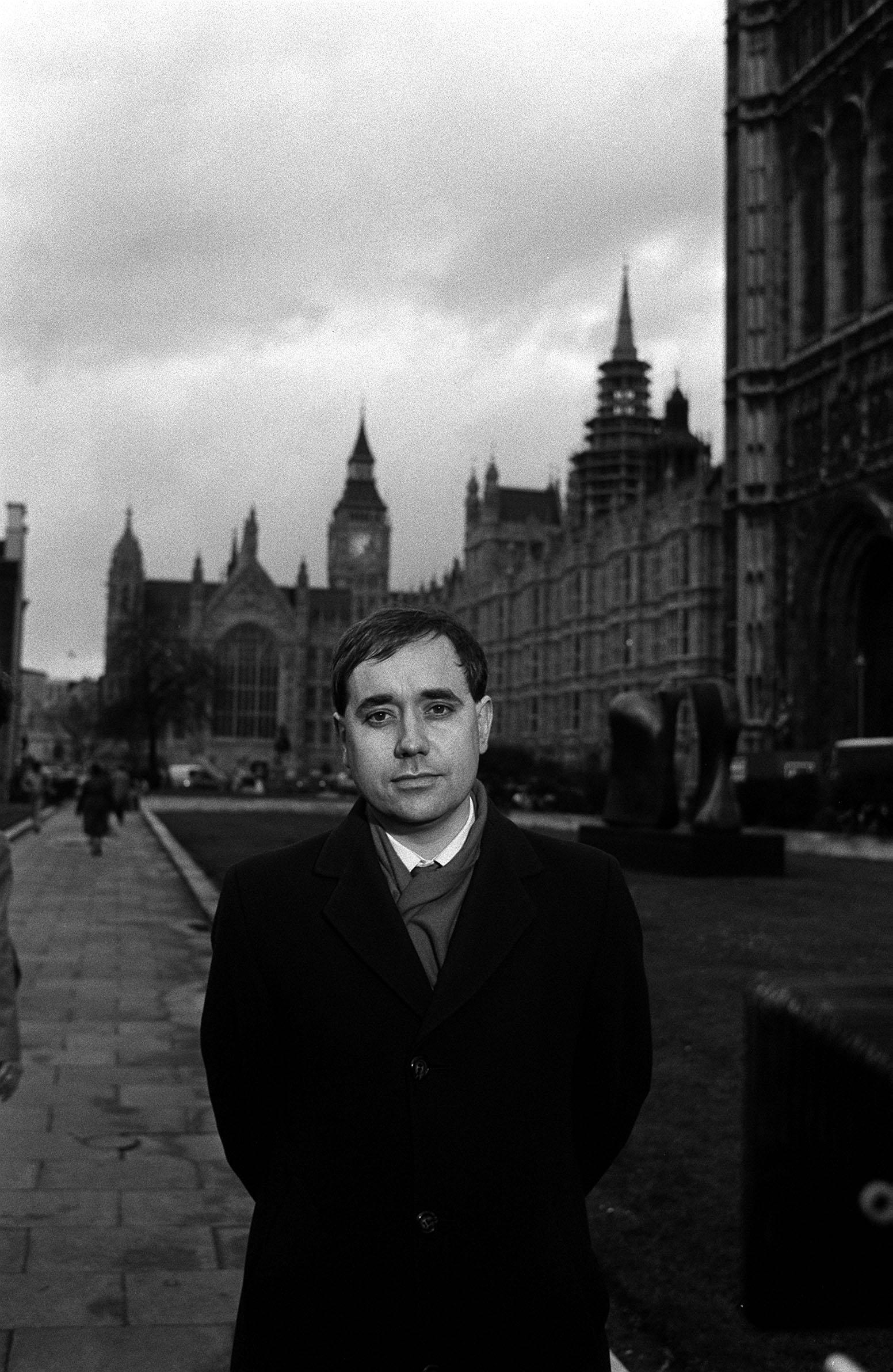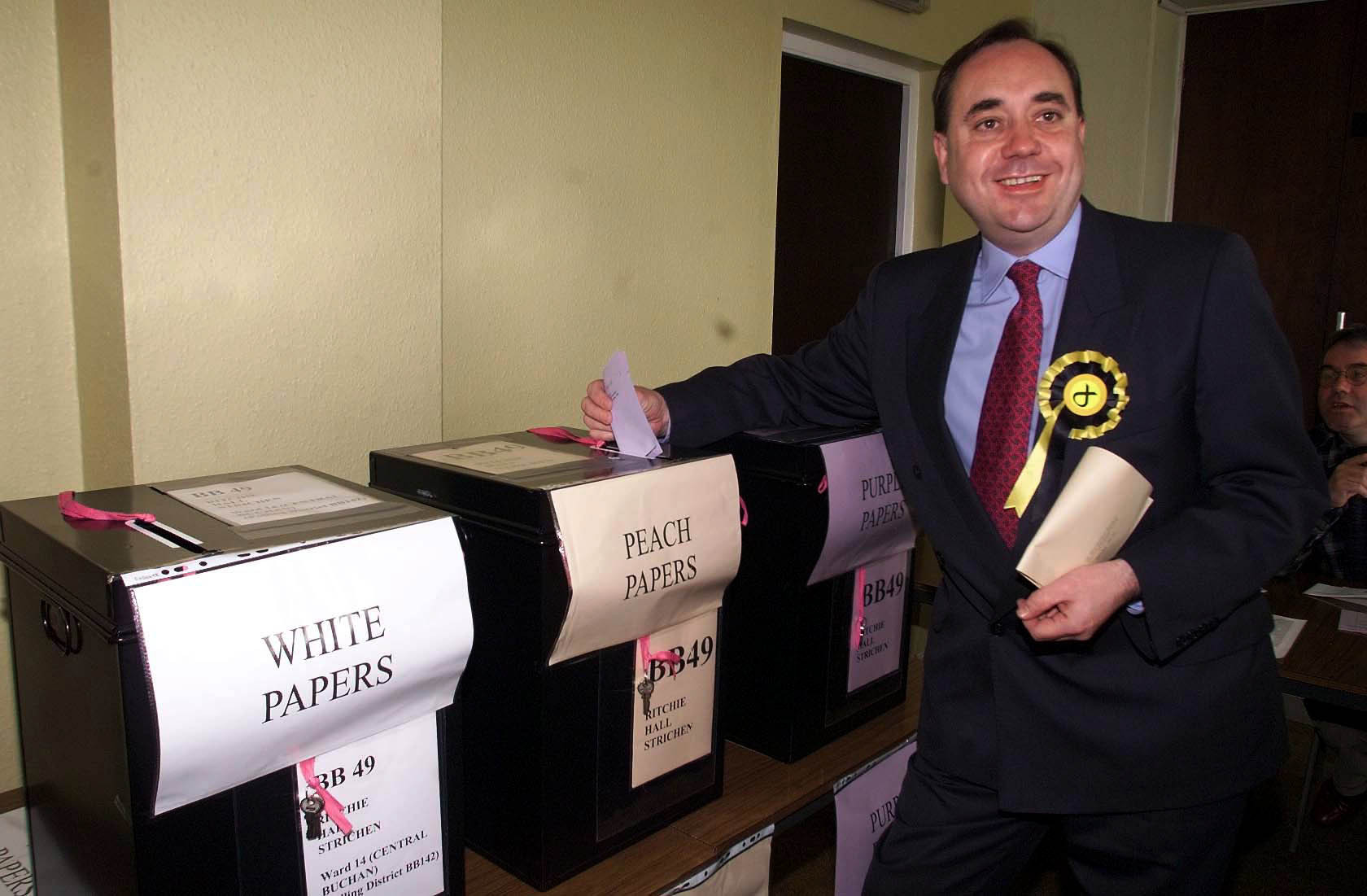
Viewed by many as the SNP’s most successful leader during his time as First Minister, Alex Salmond bounced back after defeat in the independence referendum.
Born in Linlithgow in 1954, Alexander Elliot Anderson Salmond was educated at Linlithgow Academy and St Andrews University, where he first joined the SNP in 1973.
Within a few years his left-wing views saw him play a prominent role in the breakaway faction known as the “79 Group” – with Mr Salmond expelled by nationalists for a short while for his involvement.
Graduating with a degree in economics and history, he worked as an economist for both the Government Economic Service and the Royal Bank of Scotland before going to Westminster in 1987.
 Alex Salmond entered the House of Commons in 1987 (PA)
Alex Salmond entered the House of Commons in 1987 (PA)
He became leader of the party for the first time in 1990 and when the Scottish Parliament was created in 1999 he also held a seat there, becoming MSP for Banff and Buchan.
He served as leader of the opposition at Holyrood, while retaining his seat at Westminster, but he stood down as SNP leader in 2000 and left the Scottish Parliament in 2001.
In 2007 he returned to the Edinburgh parliament, not just as the MSP for Gordon but as the new First Minister.
After the SNP won an unprecedented overall majority at Holyrood in 2011, he led the Yes campaign in the independence referendum in 2014.
However, the result – a 55% to 45% vote to stay in the UK – led to his resignation on September 19 and his deputy Nicola Sturgeon took the helm as SNP leader and First Minister by November.
Those who thought he would step back from frontline politics were mistaken, with Mr Salmond announcing his intention to return to Westminster by standing in the 2015 general election.
 Alex Salmond became MSP for Banff and Buchan in 1999 (Owen Humphreys/PA)
Alex Salmond became MSP for Banff and Buchan in 1999 (Owen Humphreys/PA)
In May 2015 he became the new MP for Gordon, overturning decades of Liberal Democrat rule. He returned to the House of Commons, standing down as an MSP at the 2016 Scottish elections.
Mr Salmond served as the SNP’s foreign affairs spokesman in Westminster and campaigned to keep the UK in the European Union.
However, he lost his seat to the Conservatives in the general election last year when he was defeated by Colin Clark in Gordon.
He has remained a prominent figure over the last year and has faced controversy since he began hosting The Alex Salmond Show on the Russian state-backed television channel, RT, formerly known as Russia Today, last November.
He was criticised for continuing to host the show following the Salisbury nerve agent attack.
In March, LBC announced that Mr Salmond would no longer present his Sunday afternoon political debate show after his six-month contract ended.
In July the broadcasting watchdog Ofcom ruled Mr Salmond’s chat show on the Kremlin backed RT TV channel had breached rules by presenting messages as having come from viewers when they had been written by members of production staff.



Why are you making commenting on The Herald only available to subscribers?
It should have been a safe space for informed debate, somewhere for readers to discuss issues around the biggest stories of the day, but all too often the below the line comments on most websites have become bogged down by off-topic discussions and abuse.
heraldscotland.com is tackling this problem by allowing only subscribers to comment.
We are doing this to improve the experience for our loyal readers and we believe it will reduce the ability of trolls and troublemakers, who occasionally find their way onto our site, to abuse our journalists and readers. We also hope it will help the comments section fulfil its promise as a part of Scotland's conversation with itself.
We are lucky at The Herald. We are read by an informed, educated readership who can add their knowledge and insights to our stories.
That is invaluable.
We are making the subscriber-only change to support our valued readers, who tell us they don't want the site cluttered up with irrelevant comments, untruths and abuse.
In the past, the journalist’s job was to collect and distribute information to the audience. Technology means that readers can shape a discussion. We look forward to hearing from you on heraldscotland.com
Comments & Moderation
Readers’ comments: You are personally liable for the content of any comments you upload to this website, so please act responsibly. We do not pre-moderate or monitor readers’ comments appearing on our websites, but we do post-moderate in response to complaints we receive or otherwise when a potential problem comes to our attention. You can make a complaint by using the ‘report this post’ link . We may then apply our discretion under the user terms to amend or delete comments.
Post moderation is undertaken full-time 9am-6pm on weekdays, and on a part-time basis outwith those hours.
Read the rules hereComments are closed on this article